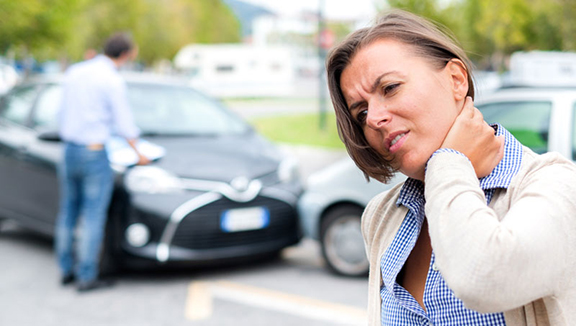You’ve Been in a Car Accident in New Hampshire: Now What?

The seconds, minutes, and hours following a car accident are often filled with fear, pain, confusion, chaos, and a loss of control. It is difficult to maintain a clear head during such an unexpected and – let’s face it – incredibly inconvenient series of events that include many moving parts. It is not uncommon for adrenaline and panic to kick into high gear while common sense flies out the window.
However, it is during this period of uncertainty and high-flying emotions that it is most important to do the seemingly impossible: remain calm, collected, and aware of your surroundings. Adhering to a checklist may be the best way to keep yourself on track at a time when focus is so important to your safety and well-being.
What Should You Do After A Car Accident?
Absolute Musts
If you ever find yourself involved in a car accident in New Hampshire or anywhere else, here are some important steps you should take:
The First Few Minutes:
1. Do not take off! Avoid any impulse to drive away without dealing with the situation lawfully. This can only lead to terrible consequences that may include your arrest!
2. Stop your vehicle and safely pull over to a spot off to the side of the road. Failing to get out of the way of other vehicles, especially on busy roads, can lead to further accidents.
**Note: Never get out of your vehicle if you have been involved in a car accident on a highway or other high-speed, high-traffic road. Every year, many people are killed as a result of being struck by vehicles unable to avoid accident scenes.
3. Turn on your headlights and hazard lights.
4. Check yourself for physical injuries; and if you can do so safely, check your passengers for injuries.
5. If you notice or suspect any injuries to anyone involved, call 911.
6. Depending on your situation, and only if it is safe to do so – provide assistance to anyone who may be injured. Be careful not to move anyone unless you are directed to do so by the 911 operator.
7. Regardless of whether you visualize any injuries, call law enforcement right away to report the accident – no matter how slight. It’s in your best interest for an officer to inspect the situation and create a report documenting his or her observations at the scene, witness statements, statements from the drivers involved, and other important information.
After the Initial Shock Wears Off.
- Before leaving the scene, it is imperative to exchange pertinent information with all drivers involved in the accident. Use your judgment as to whether you do this yourself or whether you wait for the responding officer to facilitate the exchange of information. This can be a trying time for everyone involved. Tempers may flare and accusations may fly. Sometimes it is best to remain in your vehicle and let the officials take care of the paperwork.
- Seek medical attention as soon as practicably possible – for yourself and or your passengers. If your injuries are obvious, request an ambulance. Otherwise, request transportation to a medical facility from a family member or a friend; or if you are able, drive yourself. Even if your injuries do not seem serious at first, it is important to get checked out by a medical professional as soon as possible after the accident. In many cases, soft-tissue injuries do not present symptoms until several hours or days after the impact sustained in a car accident. You do not want to wait until then to receive medical care. In addition to receiving the treatment and protecting your health, medical attention results in the creation of medical reports. These can be very important to recovering damages in any legal liability action you may bring down the road.
- Provide a truthful depiction of the accident to police officers; but do not offer extraneous information – especially if not asked of you.
- Hold off on contacting your insurance company until you have a chance to speak with an attorney. See below.
If At All Possible.

- Take photos of the scene of the car accident, including your vehicle, the other vehicles involved – particularly the points of impact, skid marks, traffic signals and/or signs, and anything else that may seem important.
- If possible, take photographs of your injuries!
- Get the names and contact information of any witnesses. Ask questions. Get their observations and recollections. Hopefully the police do the same; but it does not hurt to have your own record of what others may have to say about the situation.
Contact Attorney Charles Teale
If you were injured in a car accident that occurred in New Hampshire, you may be able to bring a personal injury claim or lawsuit against the negligent party or parties. It is important to discuss your case with an experienced and dedicated New Hampshire car accident attorney as soon as possible after the accident to ensure the protection of your legal rights. At Teale Law, we understand that all car accident cases are not the same; and that each case has unique facts and circumstances. That is why your case deserves personal attention from a dedicated New Hampshire auto accident attorney.
It is also so important to contact an attorney before you provide any statements to representatives from any insurance company – including your own. Your insurance policy dictates that you must notify your insurer of an accident within a specified time frame. Therefore, the clock is ticking. Remember, insurance companies are in the business of paying out as little as possible as quickly as possible. Your statements can and will be used against you by claims representatives.
Attorney Teale and his legal team pledge to provide you with personalized attention. Teale Law, always fights on your behalf to ensure you recover the compensation you deserve. We have significant experience negotiating with insurance companies and litigating complex car accident cases so that our clients have the maximum chance of reaching a favorable settlement or judgment.
Contact Teale Law today at 603-935-7425 or fill out our online contact form to schedule your free personal injury consultation.

